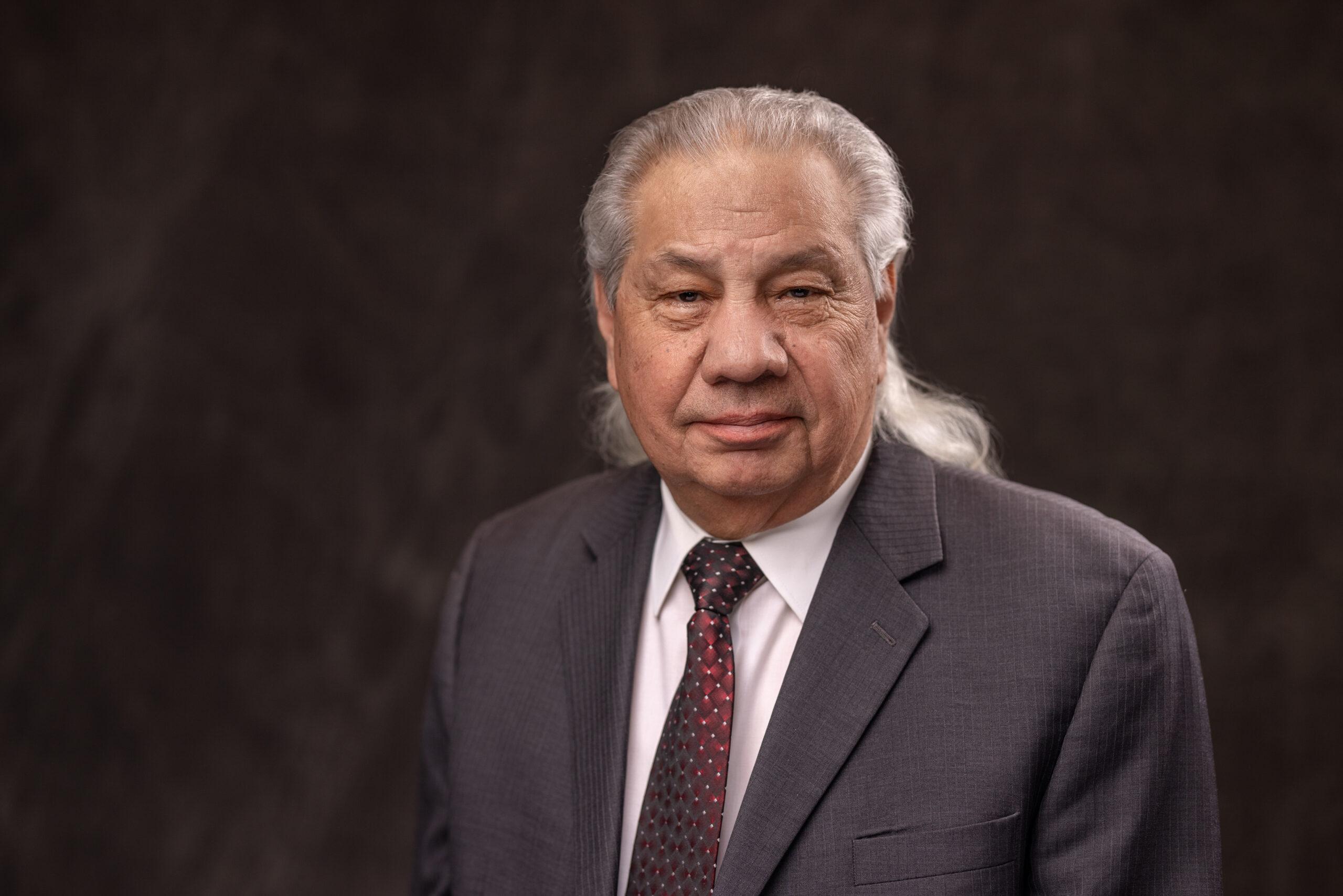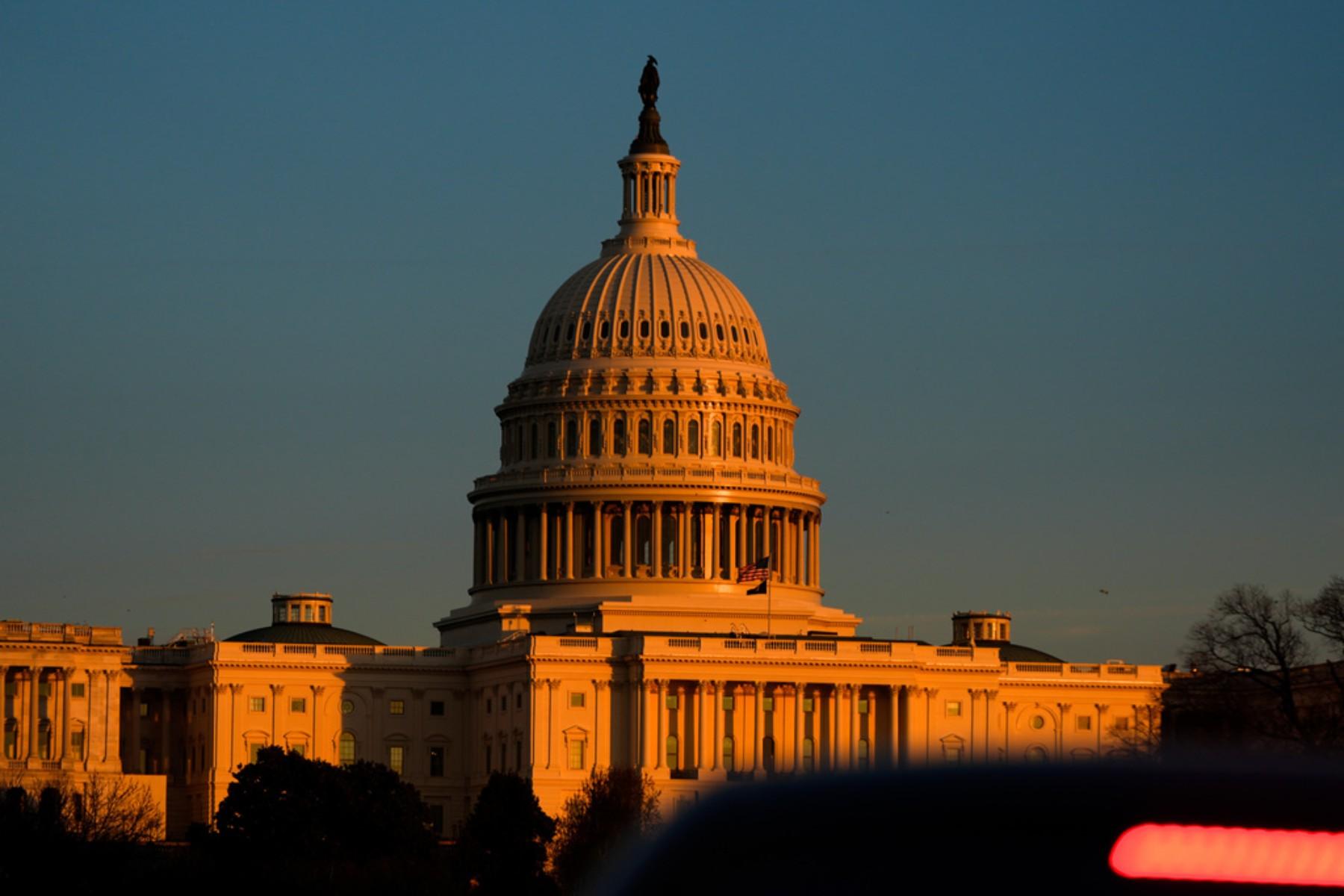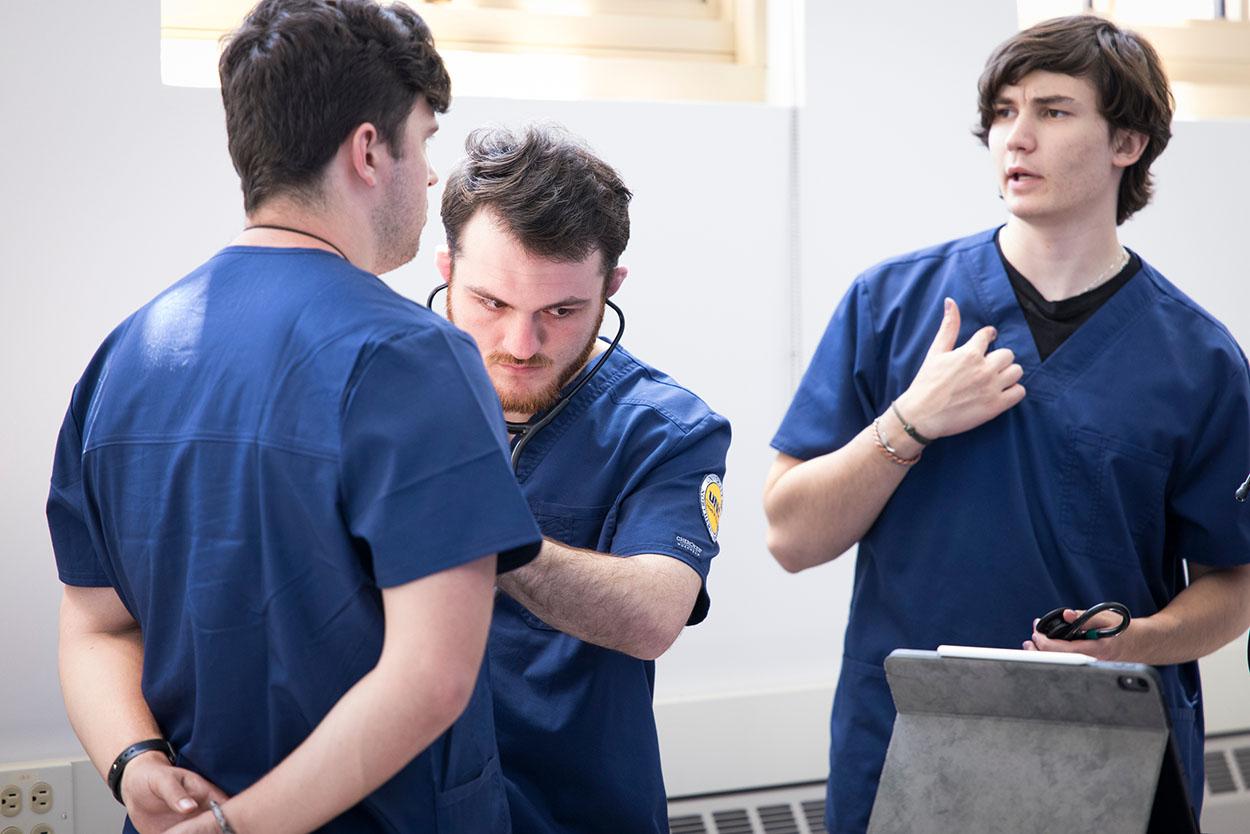
John E. Echohawk exited law school at a pivotal time for Native American rights in the United States.
In 1970, Echohawk was the first graduate of the University of New Mexico’s special program to train Indian lawyers. That same year, President Richard Nixon changed course on the United State’s policy toward Indigenous peoples, ending the “termination era” policies that were meant to assimilate Native Americans and kicking off the self-determination era.
Years of important legal battles followed over treaty rights and the ability for tribes across America to govern themselves. Echohawk was at the center of many of these cases.
He helped found the Native American Rights Fund, which is headquartered in Boulder. Echohawk still leads the organization, which assists tribes in legal fights over everything from subsistence fishing rights to cultural regalia at graduation ceremonies.
He’s set to be honored Aug. 5 in Denver by the American Bar Association with the Thurgood Marshall Award, which recognizes long-term contributions to legal professionals who helped advance civil rights.
“John Echohawk is a pioneer,” said Juan Thomas, chair of the ABA Section of Civil Rights and Social Justice, in a press release. “John has been a beacon of light for the cause of advancing civil rights for Native Americans in the United States. For over 50 years, John fought, advocated and litigated for full equity, inclusion and self-determination for our Native American brothers and sisters. You cannot call the roll of the 20th-century civil rights icons akin to Thurgood Marshall, John Lewis, Ruth Bader Ginsburg and Sherrilyn Ifill without saying the name John Echohawk.”
Echohawk spoke with Colorado Matters about the award and about his career in law.
Read the interview
This interview has been edited for length and clarity
Ryan Warner: You helped found the fund at a pivotal moment for Indigenous activism in this country. It was when the federal government was ending termination era policies that sought to assimilate Indigenous people and undermine federal obligations to tribes. Can you give us a sense for what that moment in history was like and how it shaped your career?
John Echohawk: Yes. It was historic. It's something that we had been hoping would happen, and it did in 1970 under President Nixon, just about the same time that I graduated from law school and helped to start the Native American Rights Fund.
Did it feel like a time full of potential to you?
Oh, yes. Because we had studied in law school — taking one of the first courses ever taught in law school about federal Indian law — that our tribes and Native American people had substantial rights under the treaties and laws of this country that were going unaddressed. We knew if those laws were enforced, that it would result in substantial political, legal, social, and economic change in Indian country. As it turns out, that's exactly what's happened.
What did you know about those sorts of treaties that had so often been undermined? What did you know about them before law school?
Well, I had not paid much attention to that. Because my general understanding growing up was that Indian people were basically powerless against the federal governments. I just wanted to be a lawyer and go to law school. And, under this scholarship provided by the federal government, for the first time with the credit of that law school there at the University of New Mexico, they put together one of the first courses ever taught in federal Indian law. And me and the other Native American students that were starting really (didn’t know) much about that.
And it was a real eye-opener. And we kind of realized that most of our tribal leaders didn't really know much about this, and we needed to do what we could to help them learn that and help them start to enforce those rights.
Give me an example of a right that it was important to you back then to help protect.
Well, one of the first cases that we at the Native American Rights Fund dealt with was the enforcement of a treaty, right. The tribes in western Washington had, under 1858 treaties, reserved the right to do what they had always done since the beginning of time. And that was to fish. That was their livelihood, their religion, their life.
The way the state of Washington was interpreting that language, they were saying that didn't mean anything, that the Indians had to get a fishing license just like everybody else. But that's not the way tribes had understood that language when they signed the treaty.
When that went to court, that's basically what the court decided was that the Indians owned half the fish, that they were co-regulators of the fishery with the state of Washington. That was upheld at the District Court, Court of Appeals and, eventually, United States Supreme Court. And of course, that was recognition that the treaty right was not this ancient history. It is the supreme law of the land.
Of course fish is food, fish is money, fish is destiny. I'll note that you are Pawnee. New Mexico, where you went to law school, has more than 20 recognized tribes, and there really wasn't a single course on Indian law to that point. I want you to reflect for a moment on that, that first class and some of your colleagues. How much do you think, well, frankly, those courses transformed the course of Indigenous law, Indigenous destiny?
As the rights of Native Americans started to be enforced through the Native American Rights Fund and the other legal services programs that were established by the federal government, at that same time on Indian reservations, people in the West came to understand that treaty rights were supreme law of the land — that tribes were sovereign governments along with the state government and the federal government.
Federal Indian law basically started being taught in virtually all of the western law schools and many of the eastern law schools. So it's been that fast-developing area of the law that's widely recognized today.
Give us a sense for how broad the field can be. I mean, fishing for one, right. And gaming. What else falls under this?
Basically, it's the right of Indians on the reservation to make their own laws and be governed by them. They have basically all units of government that are recognized by the state and federal governments — intergovernmental relationships that are very important across the country, particularly in the West where most of the tribes are located.
I want to ask about the U.S. Supreme Court, which you've invoked. In reaction to rulings against the tribes, something called the Tribal Supreme Court Project began on a date that will live in infamy, right, John?
Oh, yes. 9/11. Everybody knows what that is.
Sept. 11, 2001. Yep. The day of the terrorist attacks.
That was the date that there was a big meeting in Washington, DC, called by tribal leaders to address what they felt was a crisis in Indian country. And that crisis was called the United States Supreme Court. Since 1970, when the Native American Rights Fund started, and we started to get legal representation for our tribes and our people on these important issues that had been swept under the rug for so long, an inordinate number of federal and Indian law cases made it to the U.S. Supreme Court for resolution.
For the most part, the tribes and Native American interests were prevalent in those cases. So we had a pretty good winning record going until the 1990s when the makeup of the courts started to change, it became more conservative, and we weren’t winning as many cases as we used to.
Finally, in 2001, with four cases involving federal Indian law before the court that we should have won under the federal Indian law we knew, we lost all four of those cases. The Supreme Court was basically, in our view, misinterpreting Federal Indian law, and this is what drew the attention of the tribal leaders. So, they had to talk about how they could try to survive without the support of the U.S. Supreme Court. It mainly meant that we really had to stay away from there and monitor any cases that might be headed up that way because we were probably gonna lose.
So the idea was to get involved early and often?
Tribal leaders ask us to work with them at their national intertribal organization called the National Congress of American Indians. Since 2001, we've been working with NCAI monitoring all these cases and we do what we could to keep them away, or if they made it to the court, then to try to present briefs or arguments in a way that conservative justices would understand better.
I wonder what your reaction was to the ruling this term that the federal government has no “affirmative duty” to help the Navajo Nation secure water. I'll note that it's the justice from Colorado, Neil Gorsuch, who wrote a dissent, right?
Yes, that's right. Justice Gorsuch is one of the few justices that really has much of a record on federal Indian law issues and his record was really good. One of the things the tribal leaders have us do whenever there's a nomination to fill a vacancy on the Supreme Court is to research the record of that nominee on federal Indian law issues and report that to the tribal leaders. Then they decide whether they're going to support the nomination or oppose that or remain silent.
They supported Justice Gorsuch’s nomination, and that's turned out to be a good thing because he has been with the tribes in the Supreme Court cases that have come up while he has been on the court that involved federal Indian law issues. And, when he hasn't been in the majority, then he’s written a great dissent criticizing the majority decision against the tribes. And that's what happened in this Arizona against Navajo Nation case.
And what was your sense of that ruling about water?
Well, of course, I thought it was wrong. Under federal Indian law, our lands and natural resources like water are held in trust for us by the federal government. The government is our trustee and everybody knows what trustees do. They're supposed to help the beneficiary. So when we need to protect our water rights — since they have the legal title — they're supposed to help us protect those rights.
But the Supreme Court said, no, there's no specific language in the treaty or any other law that says they have to do that. And just the general duties of a trustee don't really apply here. And that really changed the law in our view on this federal trust responsibility that's been around forever.
I want people then to understand what a sea change this is for you in the way that perhaps people pointed to the abortion ruling or to the ruling on 303 Creative having to do with public accommodation laws. You see the Navajo Nation case as a kind of new judicial threshold. Is that right?
Yes. It's a new interpretation of the federal trust responsibility that's so important to the tribes and Native American people and the way we've understood it. Now it's really kind of up to the federal government to decide what they're gonna do to help protect our land and natural resources. You know, unless we have a very specific law that says they have to do it, then they stand idly by and not help us protect our land and our natural resources.
Would you go to Congress asking for a new law?
Well, that's something that's being discussed now in Indian country. And let's see what happens.
Do you want a law like that?
It would certainly help, but of course, that's not easy to get a law passed. We'd have to evaluate the possibilities of such a law that was introduced being passed by the Congress and whether it would be worth the effort.
What do you think is the new frontier of Indian law?
Well, it's always been the interpretation of federal Indian law by the United States Supreme Court. It's changed over the years since the Tribal Supreme Court Project was started in 2001. We gradually improved the win-loss record, and then that changed a little bit, and then it improved a little bit and, particularly with Justice Gorsuch on the court now the last three years, we basically had a winning record. Whether that's going to be able to continue into the future, of course, we don't know. It all depends on the makeup of the court and the nature of the cases that go before the court.
One justice who had a good understanding of this area of the law was Thurgood Marshall. Many of his opinions strengthened tribal rights. What does Thurgood Marshall mean to you, the namesake of the award you'll receive?
When I was in law school that was a time when, of course,the civil rights movement was going on. The primary issue there was the rights of African Americans to equal rights and equal treatment under the Constitutional laws of this country. And just like our Native American people, most of them were poor and didn't have lawyers. And for the most part, they were represented in the big cases by the NAACP Legal Defense Fund. Thurgood Marshall, of course, at one time was the executive director of that before he went on the Supreme Court.
When he was on the Supreme Court, I was really pleased to see him addressing those issues for African American people in a positive way — seeing the gains that they were making in asserting their civil rights — and really drew inspiration from that in terms of thinking about the Supreme Court eventually deciding to protect treaty rights and sovereignty, self-determination of Native American nations.
And that's basically what happened. Thurgood Marshall played an important role in that during the time he was on the U.S. Supreme Court. He wrote more favorable opinions on these federal Indian law cases that made it to the Supreme Court than any other justice. He was the active one. I'll always remember him.
Do you think the NAACP's legal model inspired you and the Native American Rights Fund?
It sure did. That also inspired the formation of the Mexican American Legal Defense Fund before the Native American Rights Fund was established. And those were the models that we used when we did establish the Native American Rights Fund.
It's been a pleasure to speak with you. Thanks so much, and congratulations again, John.
Okay. Thank you, Ryan.









